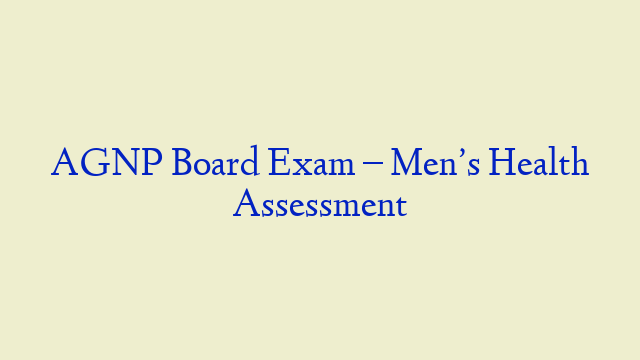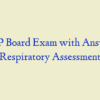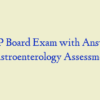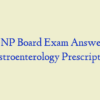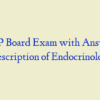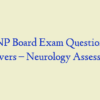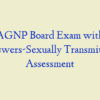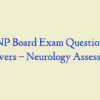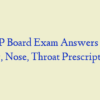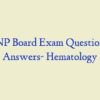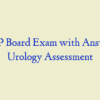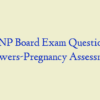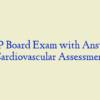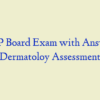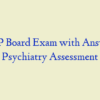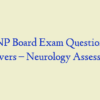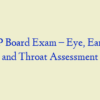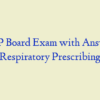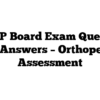Description
AGNP Board Exam Questions and Answers – Men’s Health Assessment (17 Questions)
- When palpating the prostate gland during the rectal exam, the prostate feels tender, swollen, “boggy,” and warm. This finding is consistent with:
- A 31-year-old man with human immunodeficiency virus (HIV) infection states that he has been having urinary frequency, hesitancy, fever, and nocturia. Considering his medical history, he should be evaluated for:
- A 30-year-old man who has a history of heart disease will present with which symptom related to the development of arteriosclerosis?
- At what age should a practitioner suggest a colonoscopy for a male patient as part of primary care screening?
- When the scrotum is transilluminated in a 4-month-old boy, it lights up brightly. This finding may be consistent with:
- When examining the prostate gland the examiner should inform the patient that this procedure may:
- An occurrence of benign mammary tissue hypertrophy in men that causes enlargement of the breast tissue is called:
- When palpating the prostate gland during the rectal exam, the prostate feels enlarged and nontender. This finding is consistent with:
- Which screening is commonly used in the diagnosis of prostate cancer in men 50 years and older?
- Which examination finding is defined as a congenital ventral displacement of the meatus on the penis?
- A 26-year-old man with a past medical history of sickle cell disease arrives at the office with complaints of a penile erection that has lasted 4 hours.
- He is experiencing symptoms of:
- When palpating the prostate gland during the rectal exam, an area of hardness is note on the posterior side of the gland. This finding is most consistent with:
- During assessment of a 3-month-old boy, an incomplete descent of the left testicle into the scrotum is note. The practitioner understands that:
- When assessing for the presence of a direct inguinal hernia in a man, the practitioner should palpate for a distinct bulge while instructing the patient to:
- A 21-year-old man presents with complaints of a palpable, painless, freely movable cystic mass in the scrotum. On assessment, the mass transilluminates and measures 2.5 cm in size. These findings suggest:
- An 18-year-old man presents with an acute onset of left testicular pain and loss of cremasteric reflex on the affected side. These findings suggest:
- A 30-year-old man is seen in the clinic for complaints of scrotal irritation, bilateral testicular pain, and enlarged lymph nodes in the groin that began 2 weeks after having unprotect intercourse. This subjective history describes:
